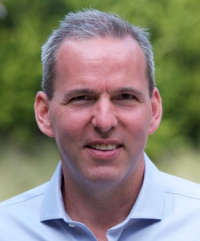
The National Post, CBC and other political commentators have described Stephen Carter as a “political mastermind.” In reality, he is at the forefront of a new political class focused on post-partisan politics.
He led Alison Redford’s successful race for the Progressive Conservative Association leadership bid in Alberta, as well as her come-from-behind campaign for premier of the province. He also served as Redford’s chief of staff.
Stephen was the architect of Naheed Nenshi’s remarkable 2010 campaign for mayor of Calgary. His roots in politics include serving as media liaison and strategist to Joe Clark from 2001 to 2003.
Carter is now the National Director of Campaign Strategy for Hill+Knowlton Strategies.
How self-interest, an abundance of information and irrational decision making has brought us to the Trump Era.
As recently as four decades ago, the center of society was our community. Small towns may have long ago disappeared, but our communities were the center of our societal life. But that has completely changed with the development of the “me first” society.
As information becomes more readily available, individuals have become their own news curators. Are you interested in NFL football? There are entire networks and thousands of websites dedicated to providing you with the information you need. But that pushes out information we used to share.
Exacerbating the situation is how we make decisions. We are most confident in our decisions when we have one fact. One fact is the most dangerous level of information for citizens to have.
The result: a tyranny of the less-engaged. Our decisions propel us from one ill-informed, irrational decision to the next. Can we reverse this trend before we lurch from President Trump to President “The Rock”? We better.
Mapping decision making patterns show disturbing patterns for growing sales.
Decision making does not happen after a well-crafted, logical examination of facts. In fact, often knowing one fact is sufficient for most decisions. Using this one fact, we make an emotional, values based decision and then force the one fact into place to justify and support our decision.
Why do we rely on one fact? Why not simply learn more?
Imagine a trip to the grocery store to get ten products. How much information do you need to make a rational decision for each purchase? So much choice. So many options. Fat levels, calories, flavours, price, package size, product features and on and on.
Instead, we rely on one fact: the brand my grandmother bought, the cheapest, the best value, the highest quality, etc.
Even buying a car has been reduced to the number and location of the cup holders!
Decision Making in the 21st Century
I know how you make decisions: you gather all the facts, weigh the potential outcomes and make your choice based on a rational review of all the factors.
But everyone else, they make their decisions at the peak of Mount Stupid. Mount Stupid is a place of incredible confidence where a decision is rationalized by select facts, past patterns and illogical processes.
The Peak of Mount Stupid represents the height of confidence, even though there is very little actual evidence to support decision making. It’s the ability to con oneself into believing we have the information we require to make the best possible decision.
Whether voting, sharing information on social media or buying a product or service, we are making decisions with information that is stilted and half-baked. Would our decision change if we had more facts? Probably not, as we are increasingly programmed to ignore the facts that do not support our point of view. Or, in the face of conflicting facts, we refrain from making a decision at all.
In this presentation, learn why having more facts doesn’t necessarily lead to better decisions, but instead may lead to no decision at all. Learn how can brands, industries, corporations and politicians can use this fact to get the outcomes being sought.